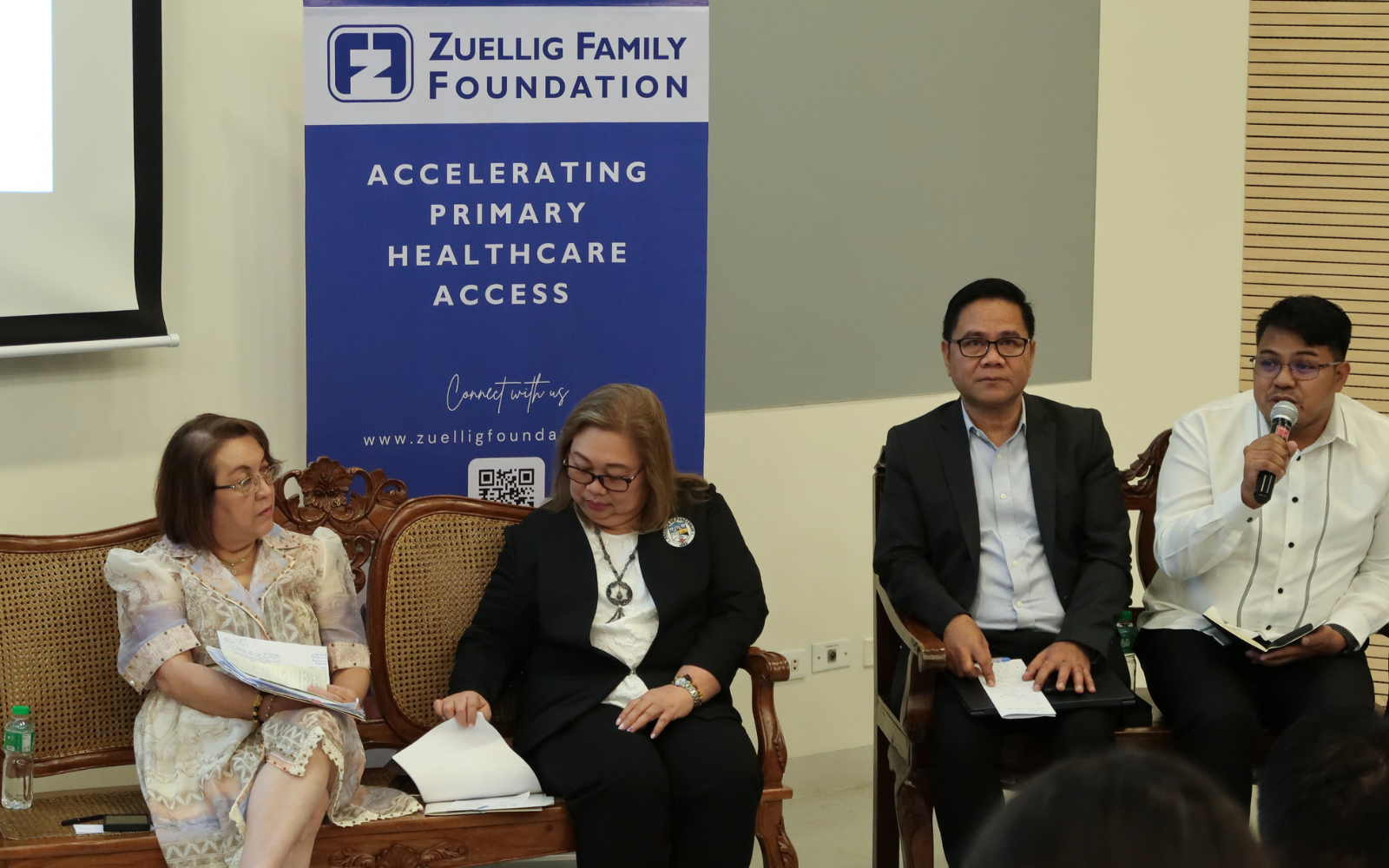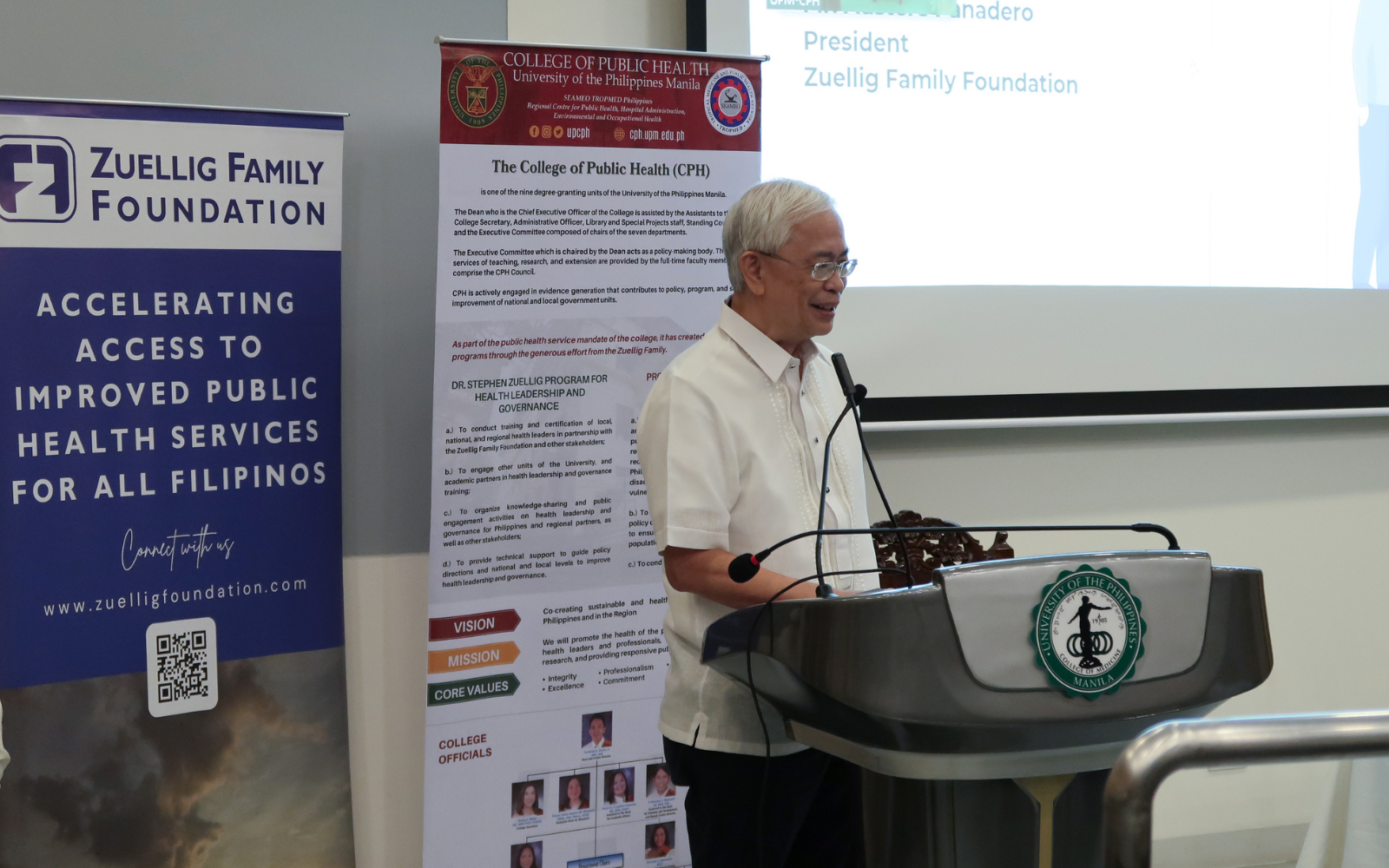Health Equity in Focus: UP-CPH and ZFF Lead Webinar on Universal Health Care
News | by Krizzia Esperanza

On August 15, 2024, the University of the Philippines-College of Public Health (UP-CPH) and the Zuellig Family Foundation (ZFF) hosted the webinar titled “Health Equity in Focus: Lessons from Early Implementation of UHC in Selected Regions.” The event, streamed via Zoom and Facebook Live, attracted over 1,500 participants eager to discuss the progress and challenges of rolling out the Universal Health Care (UHC) Law.
The webinar opened with a warm welcome from Dr. Fernando Garcia, UP-CPH Dean, who emphasized the importance of collaboration among different stakeholders to improve health outcomes and achieve health equity. Dr. Leizel Lagrada, UP-CPH Program for Health Equity Coordinator, noted that true UHC cannot be achieved without health equity, stressing the need for a strong primary health care system as the foundation.
The session featured key presentations from Dr. Catherine Chung, ZFF Local Health Systems Portfolio Director, and Dr. Anthony Faraon, ZFF Deputy Executive Director, who introduced the Bayang Malusog Program. This program focuses on training regional, provincial, and municipal leaders to speed up UHC implementation. They discussed data from the program’s target areas and shared the challenges faced, particularly in the rollout of PhilHealth’s Konsulta program. Slow implementation and technical issues with PhilHealth’s information systems, and difficulties in meeting licensing and accreditation requirements of primary care facilities were identified as significant barriers.

A panel discussion followed, where experts shared their experiences and strategies in implementing UHC at the local level. They discussed the need for better coordination, especially in areas with poor infrastructure and internet connectivity, which hampers the Konsulta registration and service delivery:
Regional Strategies for UHC Implementation: Dr. Paula Paz Sydiongco, Department of Health-Center for Health Development (DOH-CHD) Regional Director for Ilocos Region provided examples where targeted interventions and localized strategies have been employed to address specific health challenges. Dr. Sydiongco emphasized the need for regional adaptability, noting that what works in one area may not be as effective in another, and thus, tailored strategies are essential for achieving the goals of UHC.
Leadership and Governance in Health Equity: Dr. Anna De Guzman, Provincial Health Officers Association President, shared her experiences in leading health initiatives at the provincial level and how strong governance structures can drive meaningful change in health outcomes. Dr. De Guzman underscored the importance of leadership that is both visionary and grounded in the realities of the communities it serves, ensuring that policies and programs are inclusive and equitable. She said, “It’s not [about] how big you are in the implementation of UHC, but it’s more on the commitment and your passion to really push for the vision and to achieve the goals of UHC.”
The Role of Performance Monitoring in Health Equity: Lindsley Jeremiah Villarante, DOH Performance Monitoring and Strategy Division Chief, discussed how consistent and accurate data collection is crucial for identifying disparities in healthcare delivery. He pointed out that without proper monitoring and strategic evaluation, efforts towards achieving health equity could fall short, as there would be no clear understanding of which areas need improvement or further support.
Quality Assurance as a Pillar of Universal Health Care: Dr. Francisco Z. Soria Jr., PhilHealth Quality Assurance Group Vice President, explained that ensuring quality in healthcare services is not just about meeting standards but also about creating a system that consistently delivers high-quality care across all levels of the healthcare system. He stressed that quality assurance mechanisms must be in place to maintain trust in UHC and ensure that all Filipinos receive the care they deserve.

In closing, ZFF President Austere Panadero acknowledged the ongoing challenges in achieving UHC, especially in reaching the most vulnerable populations. He urged for faster and more innovative strategies to ensure that UHC benefits are felt by all Filipinos. “Ramdam ba ng bawat Pilipino ang UHC?” Panadero asked, pushing for more effort in making health services accessible to everyone.
